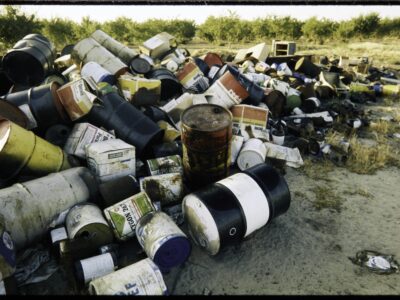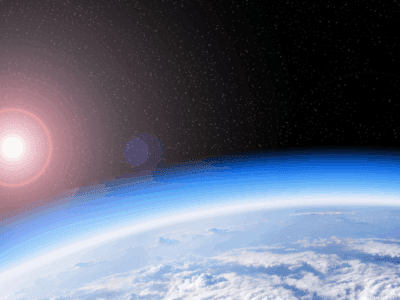Breaking Ice, Rising Waters
The latest issue of Nature contains an interesting article about climate change — not the current warming but the last one, at the end of the Ice Age. Here’s the editor’s summary:
A rapid sea-level rise occurred towards the end of the last ice age, during an event known as meltwater pulse 1A. The precise magnitude and timing of the event have remained obscure, rendering the climate forcings and consequent ice-sheet responses unclear. Pierre Deschamps and colleagues now report the results of a major coral-drilling programme in Tahiti, and establish that meltwater pulse 1A took place between 14,650 and 14,310 years ago, coincident with a warming spike. Sea levels rose by between 14 and 18 metres. Such a large rise suggests that ice-sheet collapse in Antarctica may have contributed to these changes, previously a point of much contention.
I called this “interesting” rather than “frightening” because it’s not clear how much this event can be extrapolated to present circumstances. We’re between Ice Ages, not at the end of one. (The constantly rising seas must have been scary for our ancestors, however, and probably led to a lot of sacrifices to placate the angry ocean gods.) On top of the difference in circumstances today, the event 14,000 years ago still isn’t well-understood — we don’t know if it restarted the Gulf Stream at (technically, the Atlantic Meridional Overturning Circulation) around the same time or vice versa. Still, it’s a striking illustration of the possibility for alarmingly sudden changes. Forty millimeters a year may not sound like much, but that’s four meters a century, more than enough to drown vast coastal areas. For example, most of Miami would be six or eight feet under water. Let’s hope nothing like that happens with the current warming.
Reader Comments
2 Replies to “Breaking Ice, Rising Waters”
Comments are closed.







I agree with you. The changes in the environment are cumulative. What we are seeing now is the effects of the last century of industrialisation. In our lifetimes the changes will seem less severe to some. A hundred years from now the world’s climate will surely be drastically different.
I agree with you. The changes in the environment are cumulative. What we are seeing now is the effects of the last century of industrialisation. In our lifetimes the changes will seem less severe to some. A hundred years from now the world’s climate will surely be drastically different.